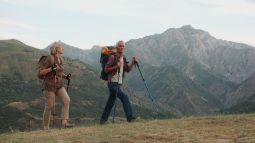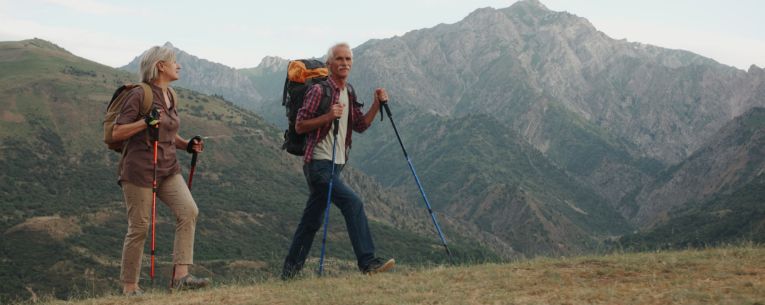Nobody expects to get sick or injured on vacation. It’s just not fair, you think. Now? Here? On this trip you’ve been planning for so long?
Unfortunately, it happens all the time. We handle more than 70,000 assistance calls each year from American travelers protected by Allianz Travel Insurance. Many of them are from people who need urgent help handling a medical emergency overseas, either for themselves or their travel companion.
Here are some of the top travel medical emergencies we see, plus tips for avoiding them and getting emergency care overseas.
Need to protect your upcoming trip? Don’t wait a day longer: Get quotes now.
What are the most common medical emergencies for travelers?
All kinds of medical mishaps can happen while traveling: a nasty norovirus, a sprained wrist, a mysterious rash, etc. What is considered a medical emergency for travel insurance? We define it as a sudden, unexpected illness, injury, or medical condition experienced during your trip that could cause serious harm if it is not treated.
The most common travel medical emergencies we see are:
1. Fractures from falls
Fractures frequently occur in the hip, ankle, tibia, and fibia (these are the two bones of the lower leg). To reduce your risk, wear comfortable footwear and make sure your travel activities match your fitness level. Cobblestoned streets are a frequent culprit in causing falls.
2. Cardiovascular problems
Heart attacks and strokes are serious medical emergencies that require prompt care. If you have heart disease or any other chronic conditions, it’s important to pack an ample supply of your medications (at least 30 days’ worth) in your carry-on. Bring printed copies of all your prescriptions, too. In addition, be mindful of your fluid and salt intake, limit alcohol usage and be aware that high altitudes can worsen your symptoms.1
3. Physical trauma
People tend to worry about catching exotic illnesses, but injuries are actually the leading preventable cause of death in Americans overseas. Specifically, motor vehicle accidents are the number one threat, killing more than 400 U.S. travelers in a three-year span.2
Always wear a seatbelt, even if you are in the backseat. If you are not comfortable getting in a vehicle, either because of the condition of the car/bus or because something seems off about the driver, trust your instincts and decline the ride.
Other common causes of trauma while traveling include violence/assault; injuries from swimming, diving, or boating; and adventure travel activities. Our Assistance team really, really wishes you wouldn’t do these 6 risky travel activities. Please!
4. Pulmonary/respiratory problems
One serious pulmonary issue we see is pneumothorax, the medical term for a collection of air or gas in the chest or pleural space that causes part or all of a lung to collapse. Travel writer Brian Major shares the story of the time he suffered pneumothorax after stepping off a flight to Mexico. “It felt as if a balloon had exploded in my chest,” he wrote.3 Fortunately, his travel insurance from Allianz Partners included emergency medical benefits and emergency medical transportation benefits, so he could be flown to Miami for treatment.
If you have chronic lung disease, talk to your healthcare provider before you travel. Use this travel checklist to make sure you have everything you need to travel safely, plus travel insurance that includes emergency medical benefits.
What are the most common travel illnesses?
The Centers for Disease Control estimate that as many as 43–79% of travelers to low- and middle-income countries become ill during or after their trip.4 Most of these are mild illnesses—like everyone’s favorite, traveler’s diarrhea. Some, however, can be serious.
What if you’re not sure how serious your illness is? Allianz Travel Insurance customers can use the Allyz® app to find a doctor while abroad and schedule an appointment. Learn more: Global Doctor Visits: Medical Care Where and When You Need It
Four of the most common travel illnesses that require medical attention are:
1. Malaria
Caused by the bite of an infected mosquito, this tropical illness often feels like the flu at first and then gets worse. You might get chills, a high fever, muscle aches, diarrhea, nausea and vomiting, or seizures. Symptoms usually begin within several days to a month after the bite.5
2. Tuberculosis
Tuberculosis is a bacterial lung disease that can lie undetected for a long time. You might have some low-level flu-like symptoms after the initial infection, like fever, fatigue, and cough. Tuberculosis bacteria then hide in the lungs, to re-emerge months or years later with severe symptoms: chest pain, severe coughing with blood or mucus, weight loss, chills or fever, loss of appetite, and night sweats.6
3. Typhoid fever
You can get typhoid by drinking untreated water or eating food that’s contaminated with typhoid bacteria. It causes a persistent fever, chills, fatigue, headache and muscle aches, a rash, and stomach problems: constipation, diarrhea, and stomach pain.7
4. Yellow fever
Yellow fever is a mosquito-borne viral disease that can be prevented with a vaccination. Initial symptoms include body aches, headaches, fever, chills, nausea and vomiting. They usually go away within 3 to 4 days. However, about 15% of patients suffer a resurgence of severe symptoms, with high fever, jaundice, bleeding from the mouth, nose, and eyes; and organ failure. Among these patients, yellow fever has a 50% fatality rate.8
What happens if you have a medical emergency in another country?
When you experience a medical emergency while traveling, the first thing you should do is call local emergency services. Every country has its own emergency numbers; make sure you know the number to call, or download the free Allyz® app from Allianz Partners, which includes emergency numbers for every nation.
Then what happens? That depends on whether you have travel insurance with emergency medical benefits and emergency transportation benefits.
- If you don’t have travel insurance and you get seriously ill or injured overseas, unfortunately, you’re on your own. The U.S. embassy will not pay for your medical care. And in most foreign countries, medical providers will not accept a U.S. health insurance card. Instead, payment for services is required in advance.
- If you have travel insurance from Allianz Partners, we can help. First, contact our emergency assistance hotline. You can call collect from anywhere in the world: 1-804-281-5700. From the United States, Canada, Puerto Rico and the U.S. Virgin Islands, call this number toll free: 1-800-654-1908. Or, open the Allyz® app and tap Assistance.
Your call will be answered immediately by a member of our Assistance team. While we can’t diagnose you over the phone, your case will be reviewed rapidly by members of our medical team.
Our first concern is to get you to the nearest appropriate medical facility that can treat your condition effectively. Allianz Partners maintains a proprietary database of 1.9 million pre-screened medical providers around the world. If you have a serious medical emergency while traveling in a part of the world without high-quality medical facilities, we can arrange emergency medical transportation to bring you to a hospital that meets our high standards of care.
Our team can work to guarantee payment to the provider, so you can be treated as quickly as possible following a covered injury or illness. Your case manager can act as an interpreter, communicate updates to your loved ones, and provide guidance and reassurance during this difficult time.
Our Assistance team will continue to monitor your treatment, and when you are stable we’ll determine what your transport needs are so you can be brought home. We arrange almost 10,000 medical repatriations each year.
What are the best travel insurance plans for medical emergencies abroad?
When you’re looking for reliable protection in case of illness or injury while traveling, choose the travel insurance provider that’s trusted by 59 million American travelers each year. Allianz Partners offers several plans that include emergency medical benefits:
| Single Trip Plans | Emergency Medical | Emergency Transportation |
| OneTrip Basic | Up to $10,000 | Up to $50,000 |
| OneTrip Emergency Medical | Up to $50,000 | Up to $250,000 |
| OneTrip Prime | Up to $50,000 | Up to $500,000 |
| OneTrip Premier | Up to $75,000 | Up to $1 million |
| Annual Plans | | |
| AllTrips Basic | Up to $20,000 | Up to $100,000 |
| AllTrips Prime | Up to $20,000 | Up to $100,000 |
| AllTrips Executive | Up to $50,000 | Up to $250,000 |
| AllTrips Premier | Up to $50,000 | Up to $500,000 |
To find the right travel insurance plan, consider your budget, your destination and the amount of coverage you feel comfortable with. Compare plans, get free quotes and in just minutes, you can protect your next adventure.
Related Articles








Share this Page